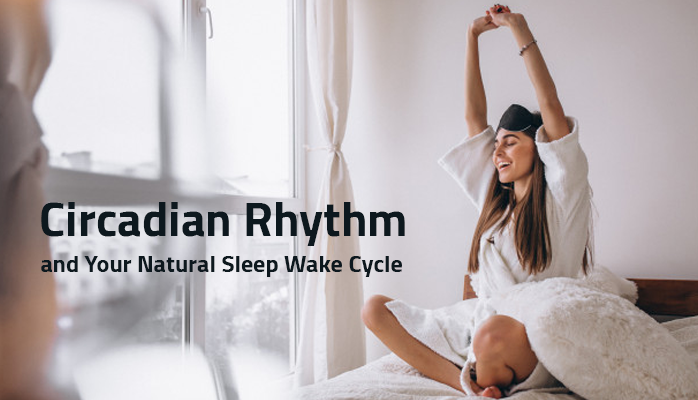What is Your Sleep Wake Cycle?
Your circadian rhythm acts as your internal timekeeper, orchestrating the delicate balance between sleep and wakefulness. Operating behind the scenes in your brain, it controls your natural cycle of rest and alertness, commonly referred to as your sleep-wake cycle.
Understanding your circadian rhythm is crucial in grasping the intricate workings of your body and brain, ultimately impacting the quality of your sleep. Your sleep-wake cycle, from the moment you rise to when you hit the pillow and wake again, is ideally a 24-hour cycle aligned with modern society's rhythm. However, variations exist, with your natural sleep cycle possibly spanning 26 or 22 hours.
Furthermore, your biological clock can be "shifted" earlier or later in the day, giving rise to the terms night owl and lark. It's worth noting that a significant portion, 40-70 percent, of your biological clock is predetermined by genetics. While you can attempt to adjust your clock, completely altering your sleep-wake cycle may prove unrealistic.
Sleep-Wake Cycle Shifted Earlier
A lark, or morning person, is someone whose biological clock is shifted to earlier in the day, meaning that they are someone who:
- Naturally becomes tired early in the evening
- Naturally wakes up early in the morning
- Experiences peak brain activity in the morning
Benefits of Being a Morning Person
Morning people may be less likely to experience insomnia and other circadian rhythm disorders because many jobs and other lifestyle factors operate closer to morning lark schedules rather than night own schedules.
Interestingly, morning larks perform better on cognitive tests in the morning than night owls who perform those same tests in the evenings.
Sleep-Wake Cycle Shifted Later
A night owl is someone whose biological clock is naturally shifted later in the day, meaning that they are a person who:
- Naturally becomes tired much later in the night, or early morning
- Naturally wakes up later in the morning
- Has best brain activity around 8pm,
A night owl may adjust easier to things like certain shift work, later jobs, and so on.
Challenges of Being a Night Owl
However, being a night owl can be extremely difficult for jobs or school that involve waking up early and may experience:
- Insomnia
- Circadian rhythm disorders
- Sleep deprivation
Some become night owls by conditioning, or by necessity, such as if one has a partner who is naturally a night owl and your sleep cycle shifts to be closer to theirs.
Anthropological Roots of Sleep-Wake Cycles
Our natural cycles likely have anthropological roots. A sleep monitoring study that was done on the Hadza people of Tanzania, whose lifestyle is the same as it has been for thousands of years, monitored the group of 20 Hadza people for 20 days and nights. Their findings were that:
- Someone was awake for almost all of the time
- Over 200 hours of study, everyone was asleep for only a total of 18 minutes
- Having a biological-clock diverse community was critical for survival, as someone is always on watch
As said earlier, about half or more of your biological clock is genetic. Based on the above study, you can owe your natural proclivity for being an earlier-riser or later-nighter to anthological history and genetics.
If you are worried that your sleep wake cycle is unnatural or causing a sleep disorder, please take this online sleep test by clicking the orange button:


